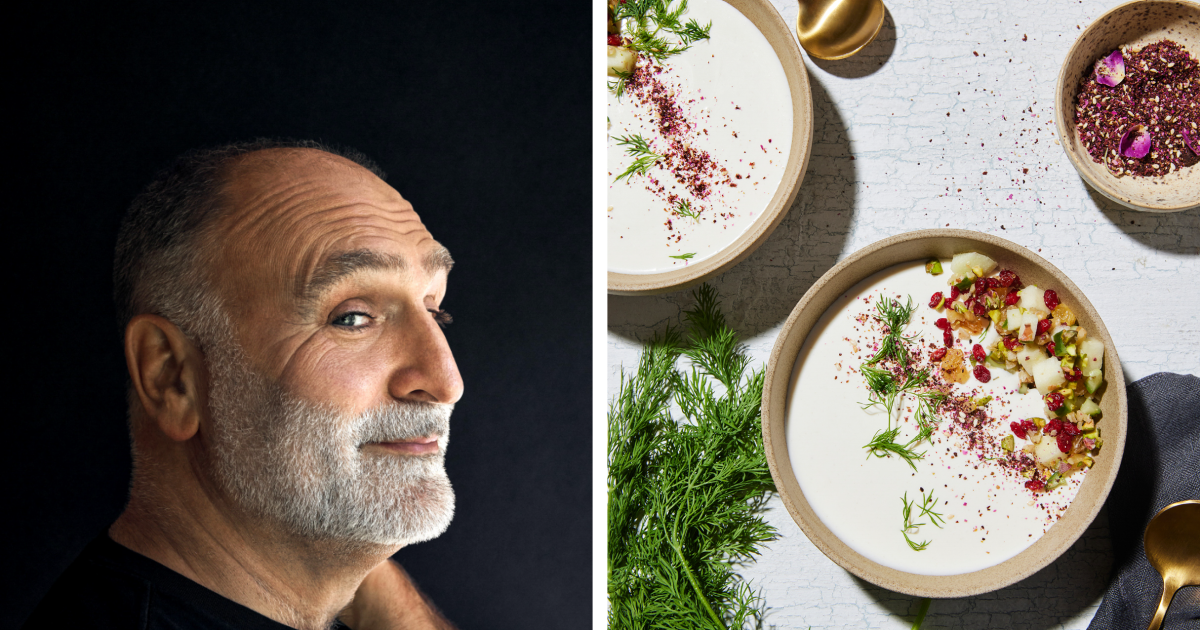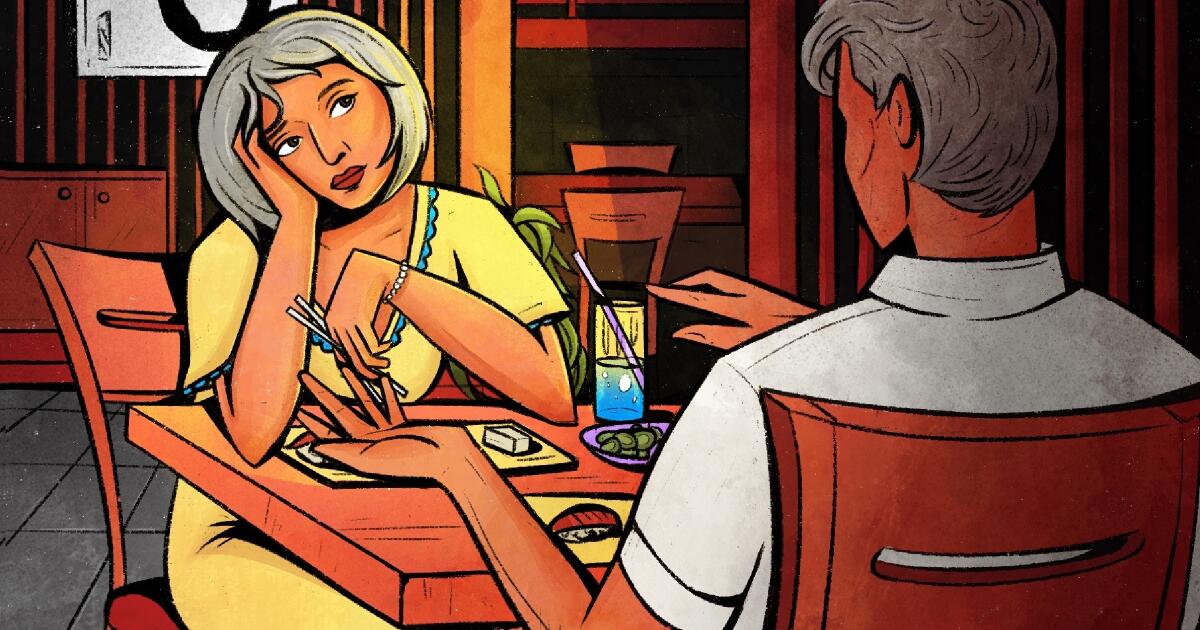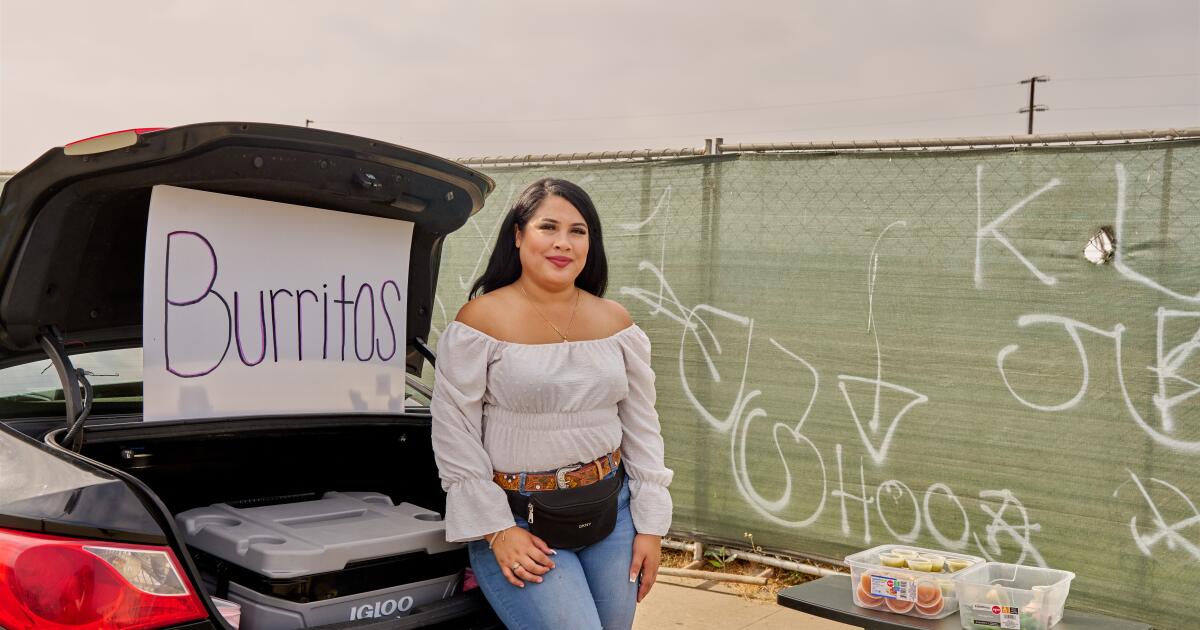José Andrés spends much of his time contemplating the unifying nature of food, both inside and outside the world's most dangerous conflict and disaster zones.
Days before an Israeli airstrike killed seven members of his aid organization working to feed Palestinians in Gaza, Andrés spoke to The Times about his recently published cookbook “Zaytinya.” Andrés is scheduled to speak at the 2024 Los Angeles Book Festival on April 21. The April 1 bombing of Gaza that killed his fellow aid workers thrust Andrés even further into the global spotlight and spurred international calls for accountability by the Israel Defense Forces and a independent investigation.
In addition to owning dozens of restaurants around the world, the Spanish chef has become synonymous with food aid through his organization World Central Kitchen, which sends chefs and other volunteers to feed people after wars and natural disasters.
“I would like the world to be governed by people who cook and feed, because this is something that unites everyone,” Andrés said in a phone call three days before the attack.
The Middle East and Eastern Mediterranean regions have always been especially dear to him. Sights, smells and flavors have proven to be something of a compass for the chef, especially over the past 22 years.
At his Washington, DC restaurant Zaytinya, a haute yet traditional exploration of Lebanon, Turkey and Greece, he seeks out the culinary links found between these cultures and the birthplace of some of the world's oldest and most influential cuisines. He hopes his new cookbook Zaytinya will further share the beauty of the region.
The cookbook “Zaytinya” by José Andrés.
(Echo)
Andrés and his wife, Patricia, delved into cobblestone alleys and bazaars, home kitchens and upscale restaurants across the Levant, consulting with chefs, merchants and other authorities to bring the restaurant to life.
He opened Zaytinya in 2002, the kind of place where Lebanese-inspired butternut hummus, Turkish braised leg of lamb, and Santorini-style whole fish sit side by side, ideally at a table shared with a group of friends and relatives. He would eventually expand this restaurant to Florida and New York, and soon to Palo Alto and Las Vegas (Los Angeles is not scheduled to welcome Zaytinya, although an outpost of the chef's steakhouse, Bazaar Meat, is expected to opens downtown this fall). near sister restaurants San Laurel and Agua Viva).
At Zaytinya the focus is on the shared connections of the dishes. And within the cookbook, items enjoyed in all regions are titled in multiple languages.
“For me, the meaning of culture is not something exclusive, but something inclusive,” he said. “It is not something that only belongs to you, but it belongs to everyone. Culture for me is the perfect synonym for longer tables, for sharing. Culture is not what I know but what I share with others and what others share with me. “That's why I never understood cultural appropriation in the area of food.”
Since opening Zaytinya, she has witnessed these cuisines and many others spread to all corners of the world, especially through the Internet, which has made sharing those cultural ties to food infinitely accessible.
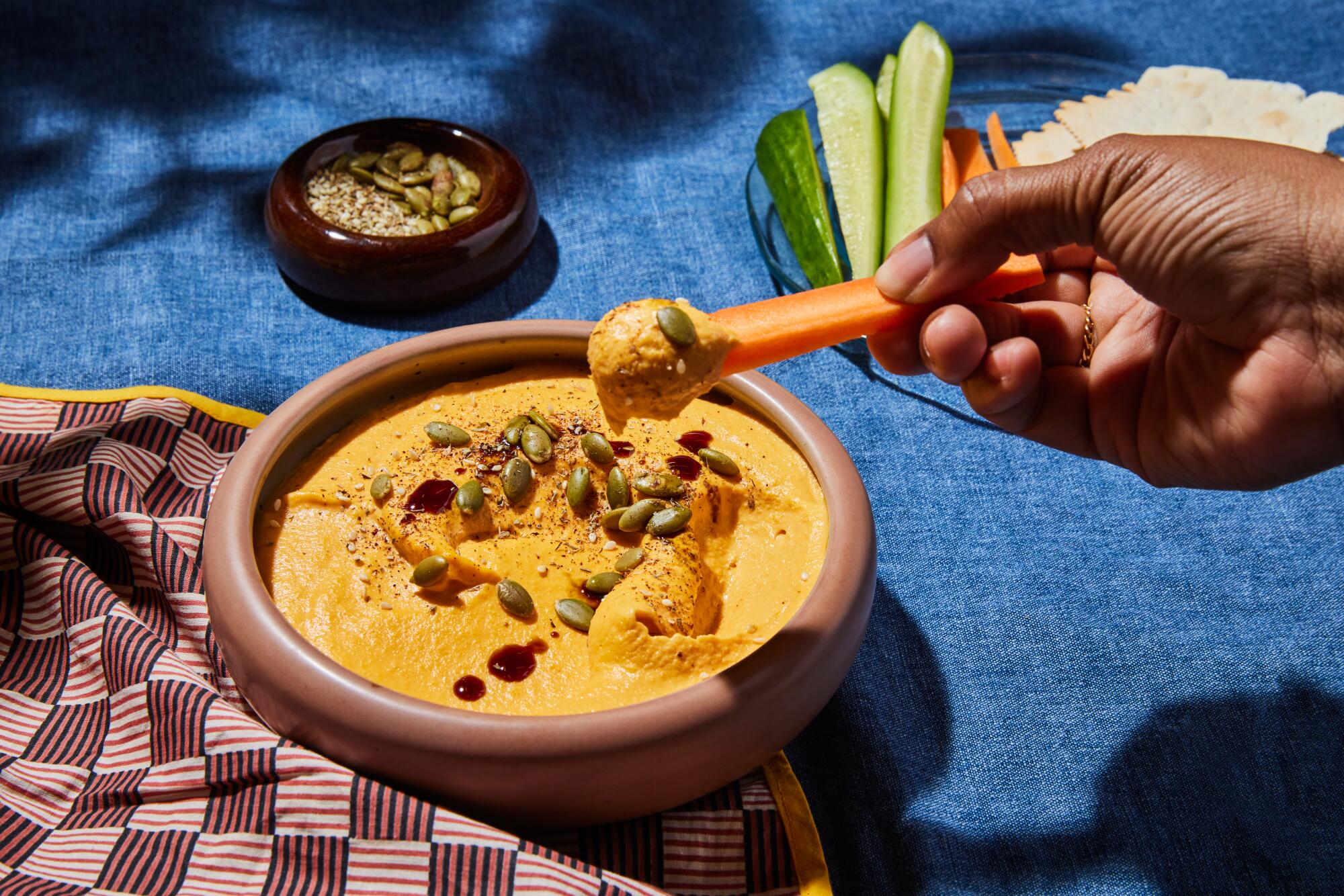
Butternut hommus, presented in “Zaytinya”, garnished with pumpkin seeds and pomegranate molasses.
(Photo by Andrea D'Agosto, food styling by Caroline Hwang and prop styling by Nia Lee / for The Times)
Ingredients ubiquitous throughout the Middle East and Mediterranean, such as za'atar, can now be found not only in specialty restaurants like Lebanese Taverna or Zaytinya, but also in large supermarkets throughout the United States. He welcomes the discourse about who invented what, but to focus only on this is, in some ways, missing the forest for the trees.
“If we move borders, there are people,” he said. “If we do not accept borders, there are no borders, there are people. Everyone loves hummus and everyone loves falafel. There are certain things that transcend borders and borders, and there are dishes that belong to the people.”
“You say tzatziki, I say cacık,” he added. He has also found it in his own culture, diving with gusto into the controversial debate over whether Spanish coca or flatbread inspired Italian pizza in an episode of the food travel show “José Andres & Family in Spain.”
Zaytinya's cookbook arrived six months after “The World Central Kitchen Cookbook.” an extensive and colorful collection of global recipes of Andrés and the participating chefs, and one that raises funds for the organization.
“People asked for the recipes because it's amazing how much love people put into recipes in emergency situations,” he said. “It's amazing the diversity of foods we've prepared throughout our history.”
In many ways, the cookbooks are wildly different: Zaytinya, he said, is about feeding the few, while the World Central Kitchen tome is about feeding the many. But in some ways the ideas were similar in translation and global nature: with Zaytinya, the recipes emerged from the restaurant and its connections to the outside world, and in the cookbook World Central Kitchen, the world serves as the restaurant.
Although the chef said he tries to keep his restaurant empire separate from his humanitarian organization, the values sometimes overlap. Zaytinya operated as a food and relief center in March 2020, when Andrés converted the restaurant and others into community kitchens during the pandemic, offering affordable meals, pre-paid options, and completely free meals to those in need.
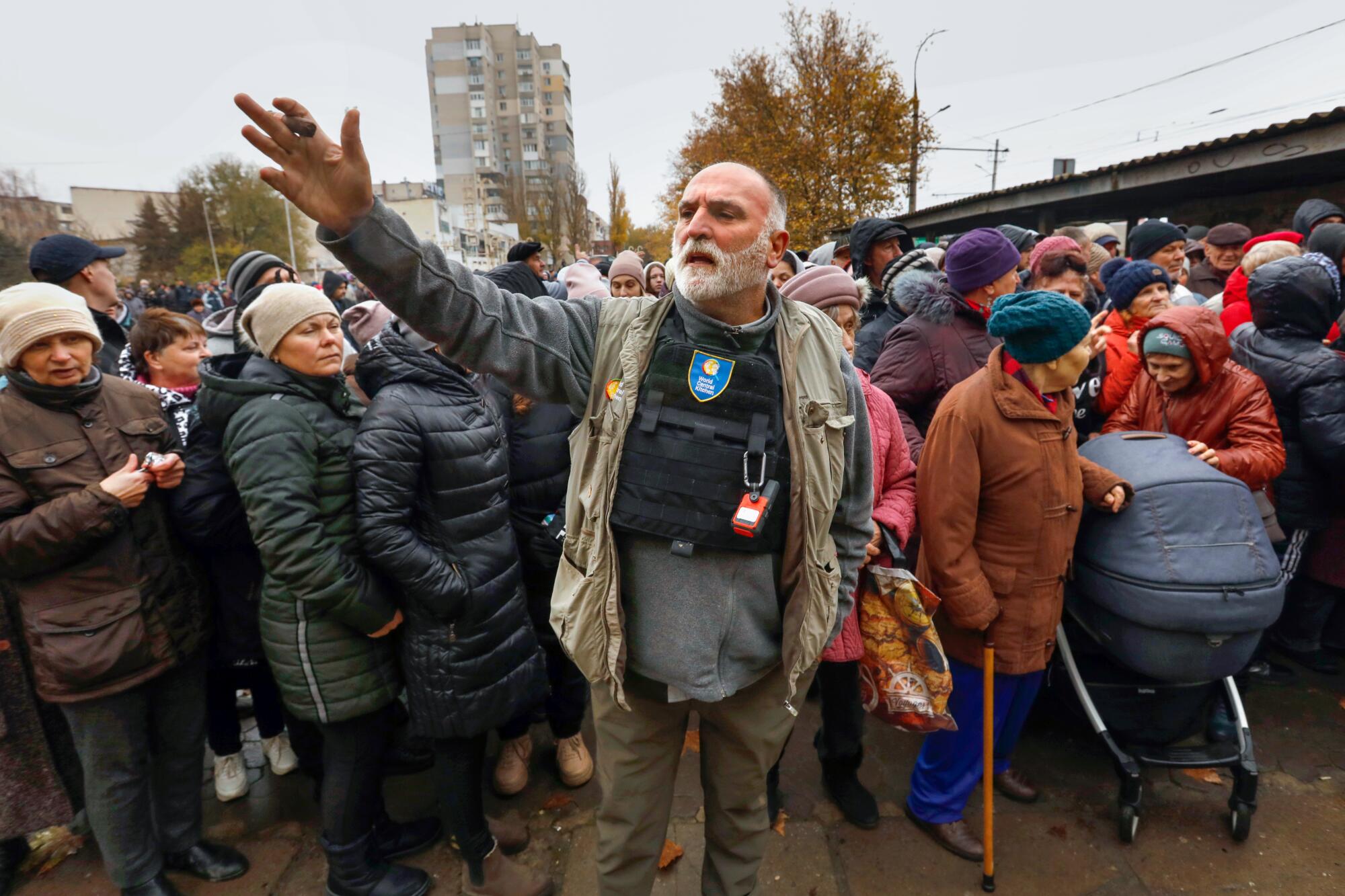
More than 800 people lined up to receive food at one of eight locations around Kherson, Ukraine, which was liberated from the Russian army in November 2022. José Andrés' World Food Kitchen was one of the first aid groups to enter the newly liberated city. bringing truckloads of food and supplies. “The hug you get,” Andrés said, “is worth a billion pounds of food.” WFK is giving away 6,000 food packages per day in Kherson, Ukraine alone.
(Carolyn Cole / Los Angeles Times)
“Water and food must be named and seen as a universal human right,” said Andrés. “Every human being on Earth, every child, should have access to food and water, no matter what. I don't know anyone who disagrees with this statement, but we don't make it happen. And we are leaving people hungry.”
He continued: “Obviously that is happening right now in Gaza, but it is happening in many places around the world. “We have the bounty of the Earth's goodness, but we are still not able to solve hunger even in rich countries.”
Andrés knows that a restaurant, a cookbook, a non-profit organization can't solve this. He still feels that he has to try and that the accumulation of efforts could make a difference.
They also serve another purpose: preserving and sharing culture, at least as best they can.
“Restaurants are important because they support ethnic cuisine in a city neighborhood, but there's actually a lot going on in the home as well,” he said.
According to Andrés and Greek food writer and consultant Aglaia Kremezi, who wrote the book's foreword, Greek, Turkish and Lebanese cuisine can be particularly difficult to replicate in a restaurant due to the rustic and soulful nature of their home cooking.
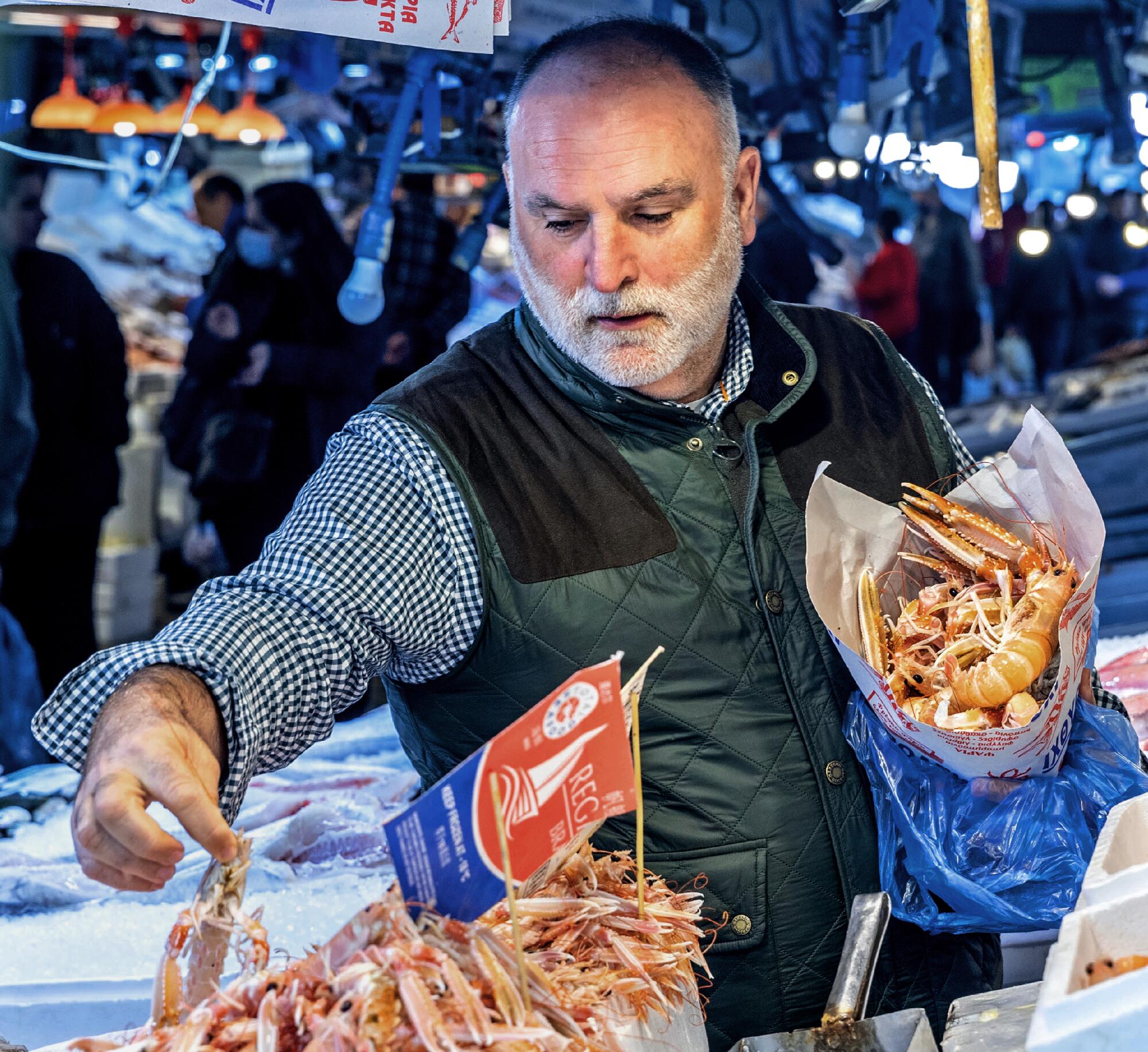
Chef José Andrés visits the Athens market in his new cookbook “Zaytinya,” which shares recipes from his Greek, Lebanese and Turkish restaurant of the same name.
(Thomas Schauer/Ecco/HarperCollins Publishing)
André tried kolokithokeftedes, or Greek zucchini fritters, at a small restaurant not far from the Santorini airport. He was lost, but a dining room sign posted on what looked like a small house caught his attention. Andrés ordered the fritters and thought they were incredible; He got the recipe and added them to Zaytinya's menu but, he said, he was never able to recreate them exactly as they were in that cozy Santorini restaurant. In his own house they have gotten closer, but in the restaurant they feel further away from their origin.
For all its spherified, extravagant and molecular gastronomy at its restaurants like Minibar and Bazaar, much of its cuisine at restaurants like Zaytinya and Jaleo is served true to its roots. “In the way I make those ethnic foods,” he said, “I always took it upon myself to be as sincere as possible about the tradition.”
Those kolokithokeftedes are included in Zaytinya's cookbook along with many other comforting, homestyle recipes from the Eastern Mediterranean and Middle East; perhaps they are truer, more replicable, and home-cooked for your loved ones too.
José Andrés is programmed to speak at the Los Angeles Times Festival of Books on Sunday, April 21 at 12:30 pm in the Bovard Auditorium. Tickets are on sale at events.latimes.com/festivalofbooks.
The recipes
Time 15 minutes
Yields For 4 people
Time 2 hours, 5 minutes
Yields For 6
Time 1 hour, 15 minutes
Yields Makes approximately 3½ cups

